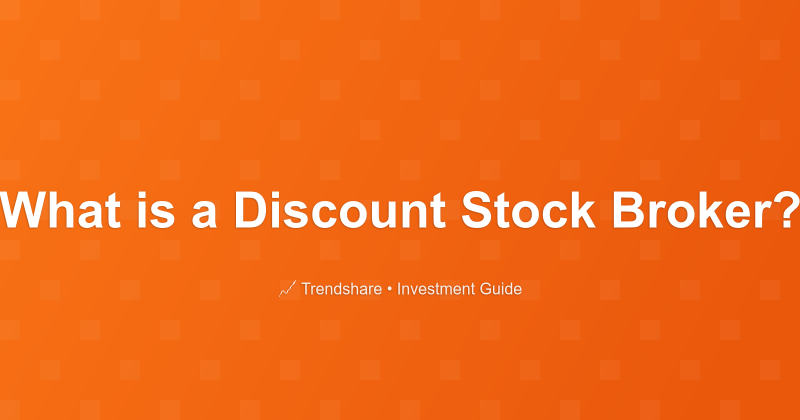
What is a Discount Stock Broker?
By Ethan Mercer
Financial Technology Analyst • 10+ years in fintech and payments
What is a discount stock broker? Investing online as a self-directed investor with a discount brokerage can multiply your profits!
Unless you have millions of dollars and a badge to wander the floor of a stock exchange, you probably use a stock broker to place your trades. If you don't know why you use the broker you're using, you may be paying too much.
What is a Full Service Broker?
Back in the olden days, back when "The Internet" was a thing you only heard researchers or college kids studying computers talk about (if at all), before smart phones and tables and wifi and 4G everywhere, if you wanted to buy or sell stocks, you had to set up a brokerage account. Then you had to call your broker on the phone and say "I want to buy some Coca-Cola stock". You'd get something in the mail a few days later.
You'd also probably get phone calls or letters now and then recommending that you put money in a specific mutual fund or buy a particular stock. You'd pay a small commission for this privilege, of course, just as you would for being able to talk to someone on the phone. The cost of placing a trade (buy Coca-Cola, sell Exxon Mobil) could have been $40 or more. You also probably paid an annual fee to have a broker available on the phone.
For that money, you would get investment advice. At least, that was the promise. You had someone at phone's reach (during banker's hours) who understood your investment goals and who had the time and expertise and interest to look at various stocks and bonds and funds to figure out what was a good value and when you should buy it.
A full service broker is someone you pay an annual charge and a large commission to to look over your portfolio and help you make decisions. Remember: it took a lot of work to make the phone calls and set up the networks to tell people on the floor of the New York Stock Exchange to trade on your behalf.
What is a Discount Stock Broker?
Of course, a lot of what you were paying for wasn't really worth it. Sure, brokerage firms had overhead, but when the Internet became popular, it was easier for people to go to a web site and click around and buy Coca-Cola shares on their own. It was even easier to find out Coca-Cola's financials online than to call a broker and have him or her send you a small mountain of paperwork, or to go to the library and look through back issues of a Value Line investing guide.
People also discovered that the less money they paid for the privilege of investing, the more money they kept from their investment profits.
A discount stock broker or discount broker is a trading service for investors who manage their own accounts. (A self-directed investor is an individual who manages his or her own portfolio.) If you're comfortable picking a stock and deciding when to buy and sell it, you can often save a lot of money by paying anywhere from $4 to $10 per transaction without annual fees.
Obviously you can pay more money to get investment advice, but if you only ever want to make discount stock trades, that's all you should have to pay for.
Should You Use a Discount Stock Broker?
If you're comfortable making trades on your own—doing your own stock research, managing your own money—you're almost always better off finding a discount stock broker. You'll pay fewer fees and keep more of your money. If your goal is primarily cheap stock trades, use a reputable online broker with low fees.
If you're not comfortable choosing stocks on your own, you're almost always better off buying index funds. In particular, buy the S&P 500 Index fund, hold it there for a long time, and get a very good return and sleep well at night.
If you really need financial advice, you're almost always better off finding a fee-only financial planner rather than paying expensive broker fees that may not have your best interests in mind. Great financial advisors do exist. They'll cost you money, but some of them can be very much worth it. Yet do you know how to find one? (They're rare. They're going to be expensive.)
Should you trade online? Almost assuredly! With a cheap stock broker? Almost always yes. Just as a good index fund will beat a mutual fund in returns, investing on your own can give you better returns than letting someone else invest for you. (If you haven't calculated the best case, average case, and worst case numbers, then it's probably not worth it.)
Investment Disclaimer
This article is for educational purposes only and does not constitute investment advice. Stock prices, financial metrics, and market conditions change constantly. Company examples are provided for illustration and should not be considered recommendations. Always verify current data from official sources such as company investor relations pages or SEC filings, assess your own risk tolerance and investment objectives, and consult a qualified financial advisor before making investment decisions. Past performance does not guarantee future results.